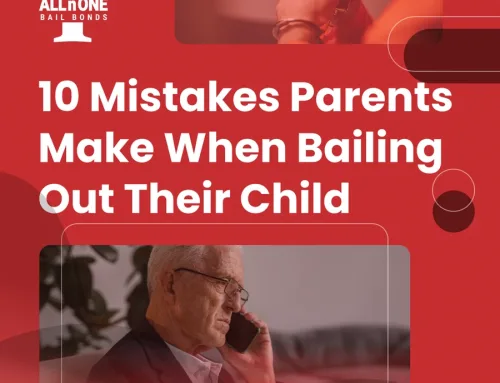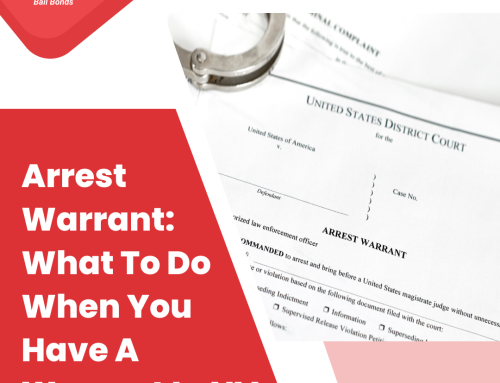Nevada is one of the worst-ranked states for instances of domestic violence. In fact, in Las Vegas, where the majority of the state’s population lives, there are some of the highest rates of homicides related to domestic violence.
When a violent incident occurs, offenders need to know what to do next. Here is a guide for anyone charged with domestic violence. It includes how to find bail bonds in Las Vegas.
Take These Steps to Find A Bail Bond
- Call All n One Bail Bonds for immediate assistance after a domestic violence arrest in Las Vegas.
- Provide the bail bond agent with the defendant’s full name and jail location.
- Fill out the necessary paperwork with the guidance of All n One Bail Bonds’ agents, who will clearly explain the terms of the bond agreement. All n One Bail Bonds has experience providing bail bonds for domestic violence cases.
- Pay the required non-refundable fee (15% of the total bail amount).
- All n One Bail Bonds will quickly post the bond, securing the defendant’s release from custody.
We offer 24/7 service, flexible payment plans, and discreet, professional assistance. Additionally, we help ensure that the defendant complies with the conditions of their release.
Domestic Violence FAQs
Q1: What Constitutes Domestic Violence
First, it’s important to understand what constitutes domestic violence and what offenses require bail bonds in Las Vegas.
According to Nevada state law:
Battery, assault, sexual assault, some types of coercion, false imprisonment, stalking, harassment, arson, trespassing, pandering, larceny, destruction of property, home invasion, burglary, and carrying a concealed weapon without a permit may fall under domestic violence.
To be considered a domestic offense, the acts must be carried out against a:
Spouse, domestic partner, former spouse, child, or relative by blood or marriage.
Additionally, a victim of domestic violence may be someone the offender has a dating relationship with or shares a child with.
Q2: What Constitutes Domestic Battery?
To be considered criminal domestic battery, the act must be intentional and use unlawful physical force. It also has to be between two people who have a domestic relationship.
The offense does not have to result in an injury in order to be considered a criminal act.
Depending on the act and its severity, a misdemeanor or felony charge may be filed. For these offenses, an individual could be immediately arrested and need a bail bond.
Q3: What Other Types of Battery Are There?
Generally, battery is any action that results in physical force. Battery occurs when someone touches another person unlawfully and aggressively. It also has to be done on purpose.
Some examples of battery that are often involved in domestic abuse cases include:
Punching, hitting, slapping, biting, kicking, choking, shoving, pushing, spitting, cutting or crushing.
Additionally, indirect physical force, such as using a weapon or bludgeon to hurt someone, spilling a drink on someone, or dropping something on someone, may also be defined as a battery.
Q4: What Is The Most Serious Type of Domestic Battery?
One of the most serious types of domestic battery is strangulation. Offenders who are arrested for domestic abuse by strangulation may be charged with a category C felony.
The penalties may include one to five years in prison and up to $10,000 in fines. Offenders may be charged with this crime even if no injury resulted from the strangulation and the strangulation was brief.
For this type of charge, it’s imperative to contact someone experienced with bail bonds in Las Vegas.
Q5: What Is Penalty For First-Time Offenders of Domestic Violence?
First-time offenders are usually arrested and charged with a misdemeanor.
If the charges result in a conviction, the individual could be directed to attend domestic violence counseling, pay up to $1,000 in fines, do community service, or serve no more than six months in prison.
If the offender commits another domestic crime within seven years, the charges can be more serious. The individual may be charged with another misdemeanor and receive jail time and fines. Second offenses get a minimum of 20 days in jail.
For a third offense in the same seven-year time period, offenders may be charged with a category B felony. This is much more serious and can result in up to six years in prison.
Q6: Does Domestic Battery Sometimes Have Harsh Penalties?
Yes.
Domestic battery may result in stiff penalties for certain situations. If certain factors are present, an individual may be automatically charged with a category B felony, even if it’s a first offense.
Any type of domestic battery that is committed with a deadly weapon, such as a gun or a knife, is an instant felony charge. Additionally, any battery that ends up severely injuring the other person may result in a felony charge.
Domestic battery cases may also be more severe if the victim is pregnant. If the offender knows about the pregnancy and commits domestic abuse, there could be a gross misdemeanor charge. For additional offenses against a pregnant victim, the charges increase to category B felonies. This may mean up to six years in prison and significant fines.
Getting arrested and charged with domestic violence is serious. All n One Bail Bonds can help people who are charged with this crime navigate the bail bonds system.
Q7: What Types of Protective Orders Are There?
There are two types of protective orders in Nevada:
(1) Temporary orders that last for approximately 45 days, and (2) extended orders, which can last for up to one year.
Protective orders are generally civil matters and don’t typically involve the criminal court of Las Vegas. They can turn into criminal offenses if the subject of the order violates certain conditions.
If you violate a temporary protective order, you could be arrested and charged with a misdemeanor, which carries a maximum sentence of six months in jail and a $1,000 fine. For extended protective orders, repeated violations could result in a felony charge.
Note: Victims can get protection from an offender by filing a protective order or restraining order with the local court.




